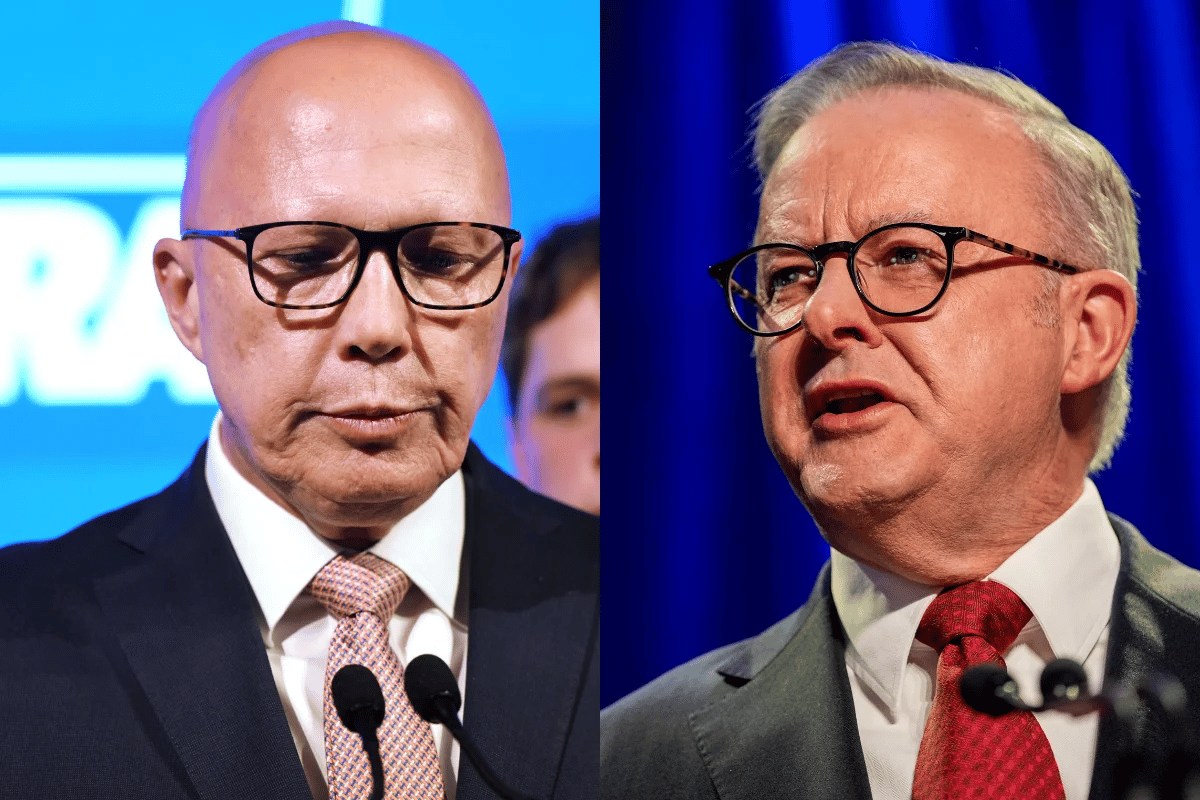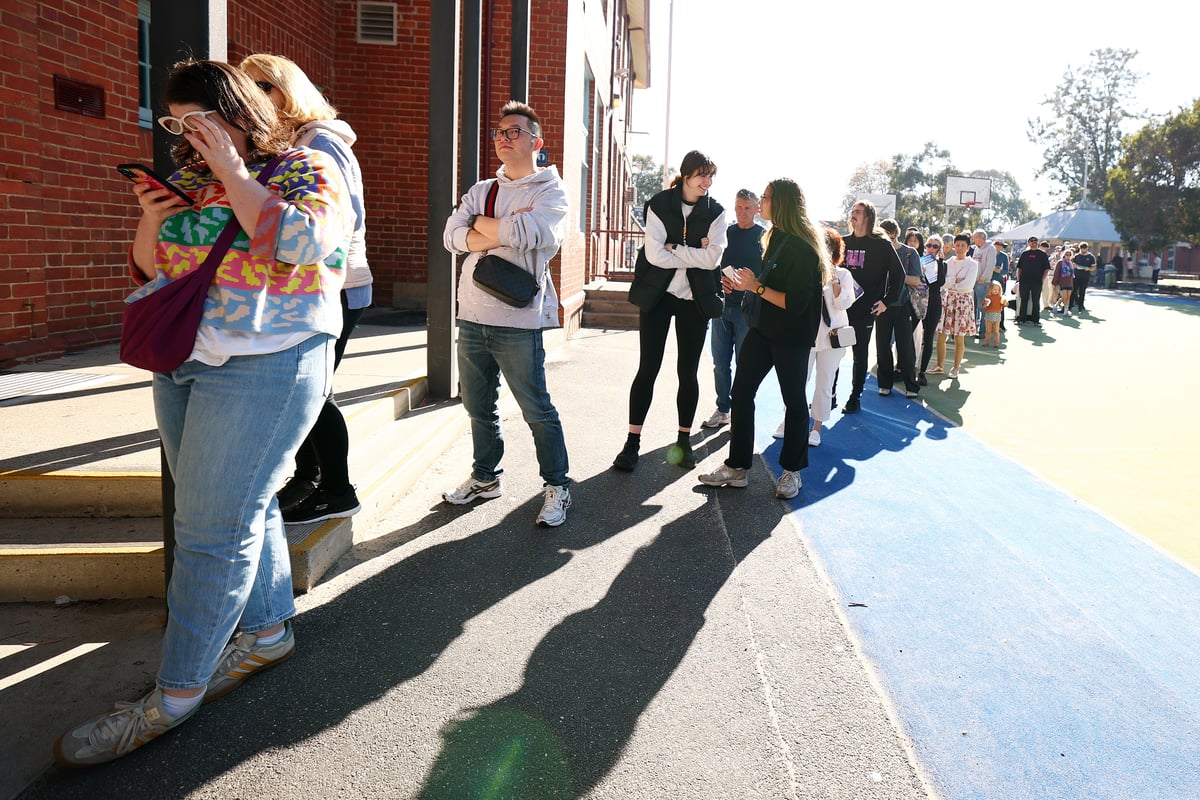
I sat at a table in a brewery in Sydney on Saturday night when my phone went off with a Mamamia Instagram notification. There was a new post, telling me and my Millennial friends that Anthony Albanese had been elected Prime Minister.
I watched on throughout the pub as phone notifications went off en masse. A very new-age way to hear an election get called. But it was also very apt, as this was an election unlike any other.
And it wasn't just different because of the onward march of Trumpism in the United States, or a burgeoning climate crisis that is consistently ignored and minimalised.
It was an election where, for the first time, young Australians had the power at the voting box. As a young Australian myself who spoke to many on the night, I saw the first threads of hope as the announcement was made.
Not necessarily because they're all huge Labor or Albanese fans — there are certainly young people who lean toward more Liberal ideologies — but because they've seen their votes reflected in the outcome this time.
At least, that's what the statistics say.
Listen: Labor's Landslide Victory & What Happens To The Liberals Now?
You see, at each election, young Australians have headed to the ballot box to cast their votes. To have their say.
According to the Australian Youth Barometer, the five most pressing issues for young Australians are housing affordability, employment and financial security, climate change, inequality and discrimination (including based on gender, race, sexuality and disability), as well as better funding for health and mental health.





























































































